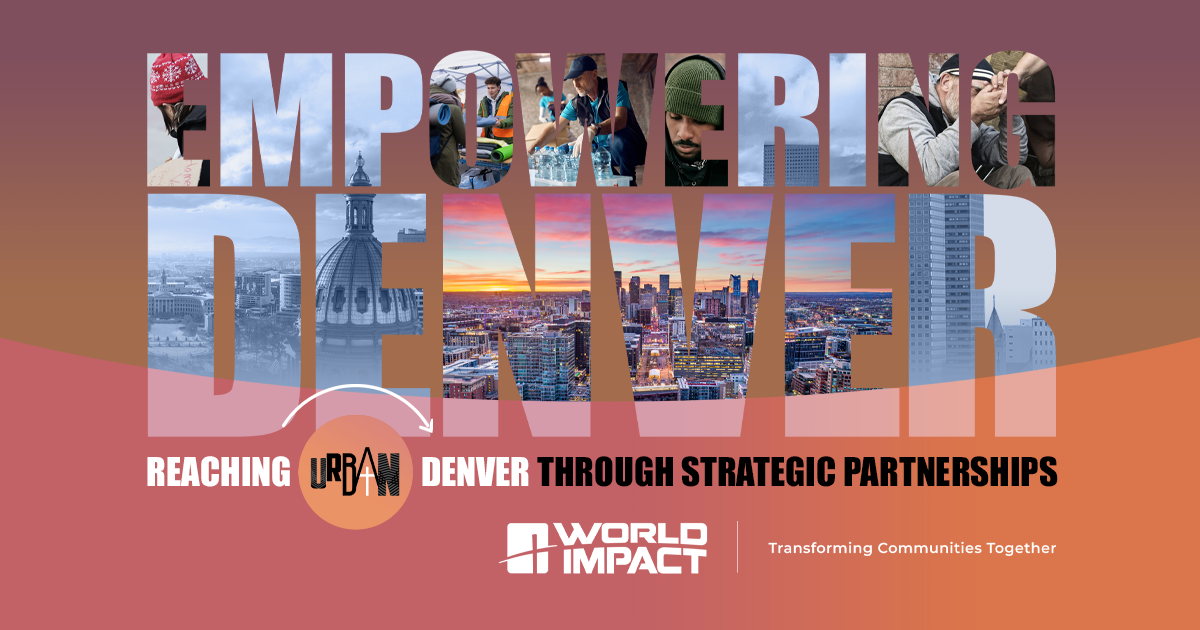Unfortunately, violence over racial issues in our country is nothing new. Ironically in August of 2015, I was in Ferguson meeting with pastors about racial reconciliation. Below is an excerpt from my book Bridging The Diversity Gap which I hope will bless you after this weekend’s traumatic events. In the face of racial tensions, violence, and hatred World Impact is as committed as ever to continue our redeeming work of racial reconciliation, unity, and empowering urban leaders. Speaking and living out the love and truth of the Gospel can truly transform communities.
The book of Lamentations might not be on the top of your reading list, but its lessons need to be heeded. The essence of the book can be found in Lamentations 1:16: “No one is near to comfort me, no one to restore my spirit.” Lament is a part of leadership throughout Scripture. Moses, Esther, Jesus, and many more practiced lament. Lament wrestles with the tension between earthly reality and kingdom pursuit. To lament is to admit we don’t have all the answers. It is the art of deep disappointment.
I’m not talking about disappointment because your favorite sports team lost or because it rained most of the time during your vacation. I’m talking about the life situations that, if not dealt with, will lead to despair. Deep disappointment can be lethal to leadership, or it can be an opportunity to mature. By navigating lament, you can transform difference from a barrier into an opportunity. Learning to navigate lament defines my journey.
In April 2001, Timothy Thomas, a nineteen-year-old African-American with a history of nonviolent misdemeanors, was shot and killed by a Cincinnati police officer. His death caused outrage in the neighborhood of my then multi-ethnic church plant (River of Life), resulting in millions of dollars of damage due to rioting. It was in this environment that we at River of Life started ministry in the very neighborhood that had been at the center of the rioting. River of Life became a tangible demonstration of what God can do when people from all walks of life live in unity for the advancement of the kingdom.
For seven years as the founding pastor, I was surrounded by the effects of ethnic conflict. In leading that wonderful ministry, I learned that multi-ethnicity is a verb and is much bigger than merely achieving harmony. I have come to believe that it is a bridge to fulfilling the Great Commission, which is impossible without following the first and second Great Commandments: When I pastored River of Life, 70 percent of those who joined were unchurched.
Most told me one of the big reasons they came was the fact that everybody was accepted there, regardless of their cultural background. That is the heroic, happy ending. But to get to that point, I had to learn the skill of navigating lament.
The leadership journey always begins within. It is difficult to lead anybody anywhere we haven’t been ourselves. At the core, leading toward God’s multi-ethnic kingdom is an expression of God’s work within us. The world is broken, and one of the results is division along racial lines. How broken is your heart over this? More importantly, are you willing to lead others to do something about it? Is healing this rift an organizational hill you are willing to “die” on?
Three years into the planting of River of Life, things were going extremely well. We started with my family and had grown quickly. Through the wonderful generosity of our parent church, we obtained an old hardware store to renovate. Through the gifts of foundations and Christian business professionals, $350,000 had been raised toward renovation. People. Money. Facilities. We were on our way to success. Or so I thought.
In a six-month period, we lost 35 percent of our people. I began to do exit interviews and could not believe my ears as to the reasons people left. They revealed a pattern of tension that indicated I had not done a good job of leading kingdom transcendence. “We don’t believe the races should worship together; I don’t want my kids involved with poor kids; black people are too loud; your wife shouldn’t be on stage opening the service because a man should do it.” Those exit interviews pretty much destroyed my paradigm of success.
I was in a place of despair. Here were people in whom I had invested for years, yet they had bailed on me and the multi-ethnic vision. To be honest, my spirit was weak, my will failing, and I was ready to resign. But before I did, I decided to fast and seek the Lord’s wisdom.
After I emerged, it was clear that God was not calling me to quit; he was calling me to focus on chasing the kingdom. Regardless of the response of the people, my job was to call them to truth and righteousness. Those years I spent shepherding a multi-ethnic church in the midst of an ethnically conflicted community have made me the Christ follower I am today.
Read more from Alvin Sanders.

